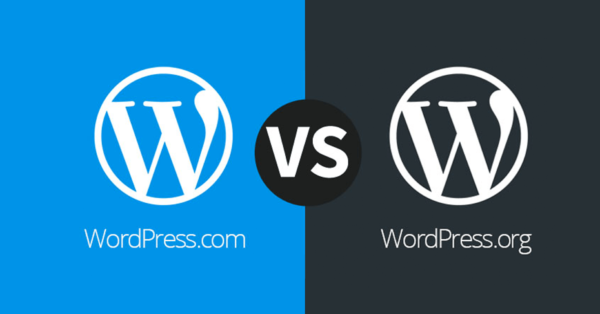Let’s face it, when people ask me, “What is WordPress?” The first thing I want to say is, “Where have you been?” I mean, WordPress is like the Swiss Army knife of website creation. It’s everywhere! Whether you’re thinking of starting a personal blog, running an e-commerce empire, or building a professional portfolio—WordPress has probably crossed your radar. But, for those of you who don’t quite get the hype (or who have somehow dodged it all this time), I’m here to give you a breakdown that doesn’t just sound like I copied it straight off a tech forum. Let’s dig in.
What Exactly Is WordPress?
Let’s start with the basics—WordPress is an open-source Content Management System (CMS). If you’re not familiar with the term “open-source,” it means that WordPress is free to use and modify, and there’s a massive community constantly working on it. It’s also the platform behind about 43% of all websites on the internet. Yes, almost half the web runs on WordPress, which is both impressive and slightly terrifying when you think about how much responsibility that is.
I know what you’re thinking: “But isn’t WordPress just for bloggers?” That’s a common misconception. Originally, yes, it started as a blogging platform in 2003. Fast forward to today, and it’s a fully-fledged website builder that supports everything from blogs to full-blown e-commerce stores, portfolios, forums, social networks, and more. If you’ve got a vision, chances are you can build it on WordPress.

The Two Faces of WordPress: WordPress.org vs. WordPress.com
Ah, the part that confuses the masses. There are two versions of WordPress: WordPress.org and WordPress.com, and they are not the same thing. Let’s clear that up real quick.
- WordPress.org: This is the version you hear about when people talk about the power and flexibility of WordPress. It’s free to use (you’ll just need your own hosting and domain), and it’s the go-to for anyone serious about creating a website. Want to add custom plugins? Install fancy themes? Tweak the code to your heart’s content? WordPress.org is where you want to be.
- WordPress.com: Think of this as the “lite” version. It’s more of a managed service, with WordPress.com handling the hosting and most of the technical stuff. There’s a free version (with limitations), and premium versions if you need extra features like a custom domain. While easier to get started, you’re sacrificing some control here. You won’t have the same freedom to install any plugin you want or modify code.
So, if you’re a hands-on kind of person (like me), WordPress.org is your best friend. If you’re just getting your feet wet and want things simple, WordPress.com might be the way to go—just keep in mind that you might outgrow it.
Why WordPress is the Undisputed King of CMS Platforms
Look, I’ve worked with a bunch of website builders and CMS platforms over the years (trust me, I’ve seen some bad ones). WordPress consistently stands out because it’s:
- Flexible and Customizable: With over 58,000 plugins in the official directory (and countless others available through third parties), you can add almost any functionality you need. Want to add an online store? There’s WooCommerce. Need a booking system? Got it. Fancy SEO tools? Done.
- SEO Friendly: Speaking of SEO, WordPress comes with some great SEO capabilities right out of the box. Plus, with plugins like Yoast SEO, you can fine-tune everything down to the tiniest detail.
- Scalable: Whether you’re building a simple one-page site or a massive e-commerce empire, WordPress can scale with you. Some of the biggest names out there—TechCrunch, The New Yorker, BBC America—are powered by WordPress.
- Community and Support: Because WordPress is open-source, it has a massive global community. You’ll never be short of tutorials, forums, and support docs when you need help. And if you’re more of a “let someone else handle it” person, there’s an entire industry of WordPress experts who can help you out.
- Design Freedom: Want a minimalist, clean design? Or maybe a bold, image-heavy portfolio? With thousands of free and premium themes available, your site can look however you want. (And yes, I’m here if you need some professional help!)
But Isn’t WordPress Hard to Learn?
This is probably one of the top questions I get. The short answer is: no, not really. But it can seem a bit overwhelming at first, especially if you’re used to more beginner-friendly website builders like Wix or Squarespace.
Here’s the thing—once you get the hang of the basics, you’ll be fine. If you’ve ever used Microsoft Word or Google Docs, you’re already ahead of the game. WordPress uses something called the Gutenberg block editor, which allows you to build pages by dragging and dropping different “blocks” of content. Want to add a text box? A video? An image gallery? It’s all just blocks that you can arrange how you like. The learning curve is there, but trust me, it’s manageable.
WordPress Security – What You Need to Know
Now, let’s talk about the elephant in the room: security. Given WordPress’s massive popularity, it’s a prime target for hackers. Does that mean you should avoid it? Absolutely not. It just means you need to be smart about security.
Here are a few simple steps to keep your WordPress site safe:
- Keep everything updated: WordPress frequently releases security patches, so always make sure your core files, themes, and plugins are up to date.
- Use a security plugin: Plugins like Wordfence or Sucuri can help keep an eye on your site and block malicious activity.
- Backup regularly: If something does go wrong, a backup will save your life (or at least your website). Use plugins like UpdraftPlus for easy backups.
WordPress for E-Commerce
Let me hit on this quickly because it’s a game-changer for anyone wanting to sell online. If you’re planning to run an online store, WooCommerce is the plugin that transforms your WordPress site into a full-blown e-commerce machine. It’s free (for the basics), customizable, and integrates with all the major payment gateways like PayPal, Stripe, and even Apple Pay.
WooCommerce powers nearly 30% of all online stores globally, so yeah, it’s kind of a big deal. Whether you’re selling physical products, digital downloads, or memberships, WooCommerce has you covered. And since it’s built on WordPress, you’re getting all the SEO, security, and customization benefits I’ve already talked about.
FAQs About WordPress
Q: Do I need to know how to code to use WordPress? A: Not at all! That’s one of the beauties of WordPress. While having some basic coding knowledge (HTML, CSS) can help you tweak things to your liking, it’s not a necessity. The block editor and countless plugins make it possible to build a great site without touching code.
Q: Is WordPress really free? A: WordPress.org is free to download and use. However, you’ll need to pay for hosting and your domain name, and if you want premium themes or plugins, those will come with a price tag too.
Q: Can I switch from WordPress.com to WordPress.org? A: Yes, and people do it all the time. There’s a process involved, but it’s doable. You’ll need to export your content from WordPress.com and then import it into your new WordPress.org site.
Q: What’s the difference between a WordPress theme and a plugin? A: Themes control the appearance of your site, while plugins add functionality. So if you want to change how your site looks, you’ll change the theme. If you want to add a contact form or an online store, you’ll use a plugin.
Q: Can I use WordPress for free on WordPress.com? A: You can, but it comes with limitations like WordPress.com branding, no custom domain, and fewer customization options. To unlock more features, you’ll need to upgrade to a paid plan.
Final Thoughts
Whether you’re just getting started or you’re looking to scale a full-fledged online business, WordPress has something for everyone. With its endless flexibility, powerful features, and vibrant community, it’s no wonder it’s the most popular CMS on the planet. So, what are you waiting for? Give WordPress a go—and if you need help, you know where to find me!
Discover more from Cheap Web Design UK
Subscribe to get the latest posts sent to your email.


